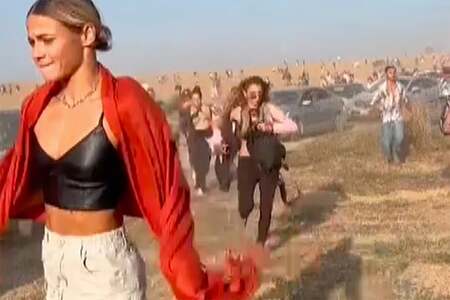Promoters can take several steps to make music festivals safer for attendees. Safety should be a top priority to ensure that festival-goers have an enjoyable and secure experience. Here are some ways promoters can enhance safety at music festivals:

- Security Measures:
- Increase the number of trained security personnel to monitor the event and respond to potential issues.
- Implement bag checks and security screenings at entrances to prevent prohibited items from entering the festival grounds.
- Use metal detectors and drug-sniffing dogs to identify concealed weapons or illegal substances.
- Crowd Control:
- Manage crowd density to prevent overcrowding in front of stages or in specific areas.
- Implement clear pathways and emergency exit routes to facilitate safe movement in case of an emergency.
- Utilize barriers or fencing to maintain separation between the audience and performers.
- Medical Services:
- Provide well-equipped medical tents and trained medical staff to respond to medical emergencies and provide first aid.
- Encourage attendees to seek help when needed and establish a clear system for reporting emergencies or safety concerns.
- Hydration and Amenities:
- Offer free water stations to help attendees stay hydrated and prevent heat-related illnesses.
- Provide ample restroom facilities to reduce long lines and maintain hygiene standards.
- Communication:
- Use a public address system and large screens to relay important safety announcements and information to the crowd.
- Promote a “see something, say something” culture where attendees report suspicious or unsafe behavior.
- Emergency Plans:
- Develop and communicate detailed emergency response plans for various scenarios, including medical emergencies, severe weather, and security threats.
- Coordinate with local law enforcement, fire departments, and medical services to ensure a swift and effective response to emergencies.
- Alcohol and Substance Use:
- Enforce age restrictions for the consumption of alcohol and prohibit underage drinking.
- Implement strict rules against drug use, and educate attendees about the dangers of illicit substances.
- Lighting and Environmental Considerations:
- Ensure proper lighting to reduce the risk of accidents in poorly lit areas.
- Take environmental concerns into account, including the risk of wildfires in dry areas and the management of waste and recycling.
- Training and Staffing:
- Ensure that all staff and volunteers are adequately trained in safety protocols and know how to respond to various situations.
- Hire professional security firms with experience in large events to manage security.
- Legal and Liability Considerations:
- Work closely with legal advisors to understand and mitigate potential liabilities and risks associated with the festival.
- Technology:
- Use technology, such as surveillance cameras and apps, to monitor and improve safety at the event.
- Provide a means for attendees to locate their friends or request assistance in case of emergencies.
- Feedback and Evaluation:
- Collect feedback from attendees to identify safety concerns and areas for improvement for future festivals.
- Continuously assess and update safety protocols based on lessons learned from previous events.
Promoters should collaborate with local authorities, emergency services, and the community to create a safe environment for festival-goers. Safety should be an ongoing consideration throughout the planning, execution, and evaluation of the event.

